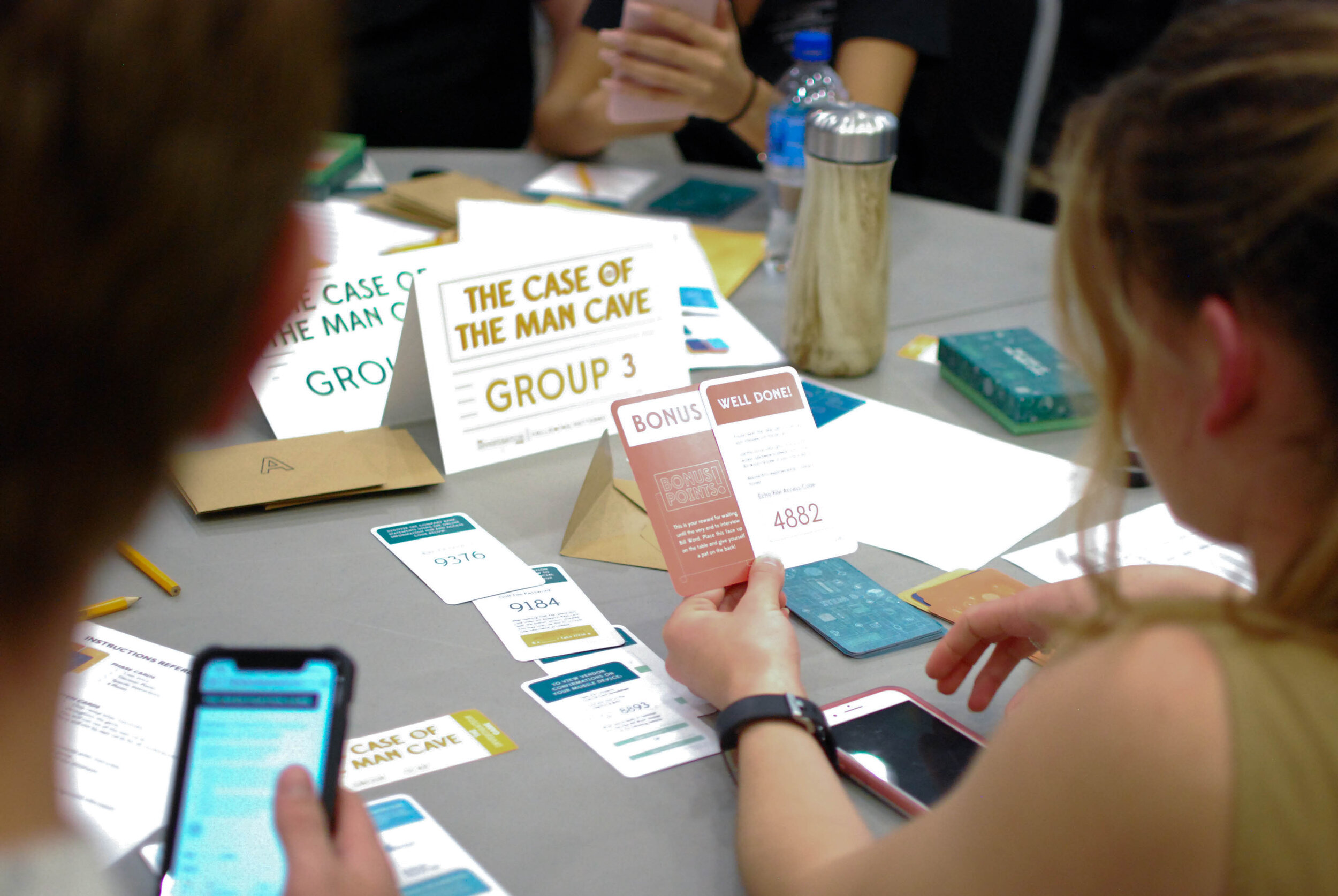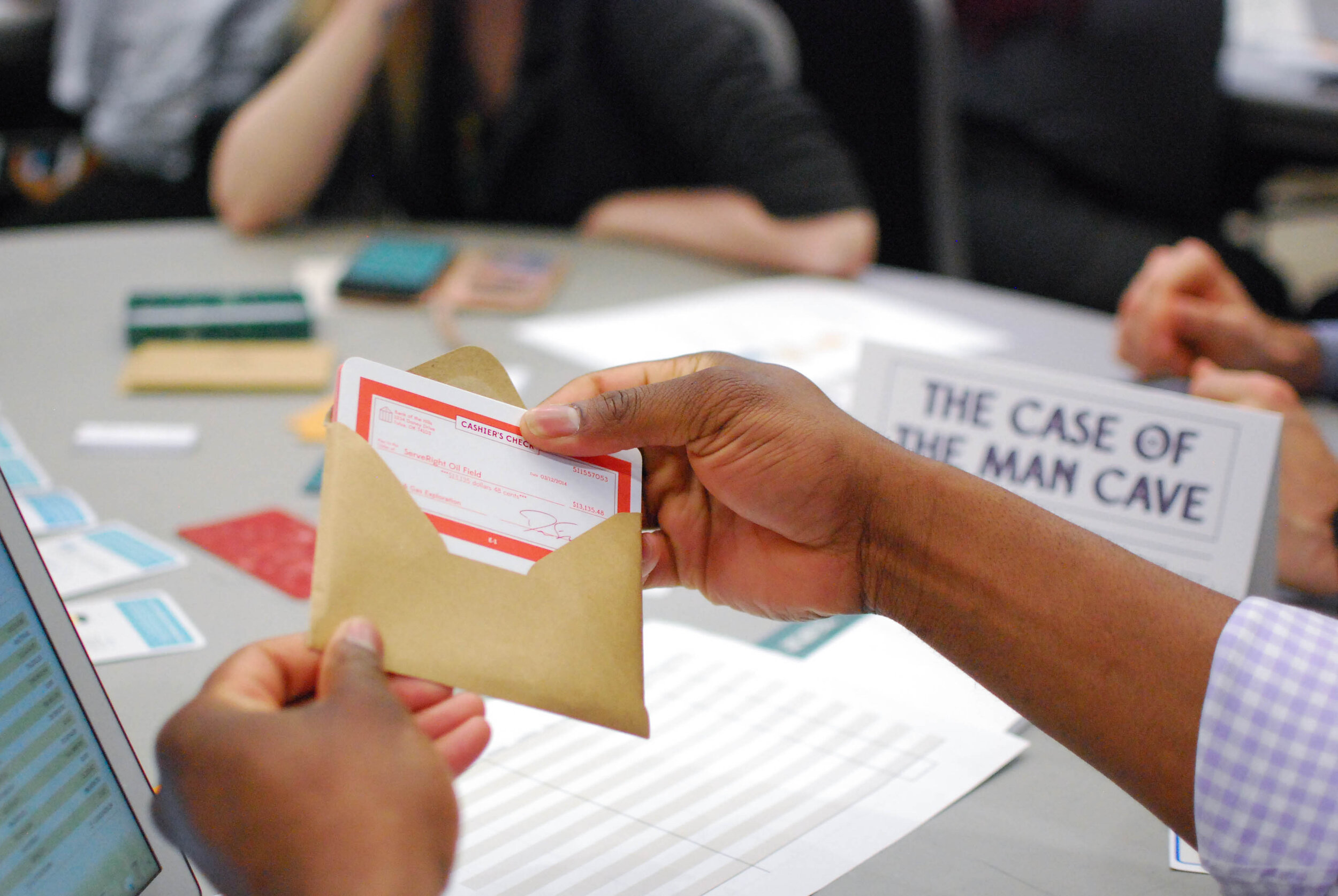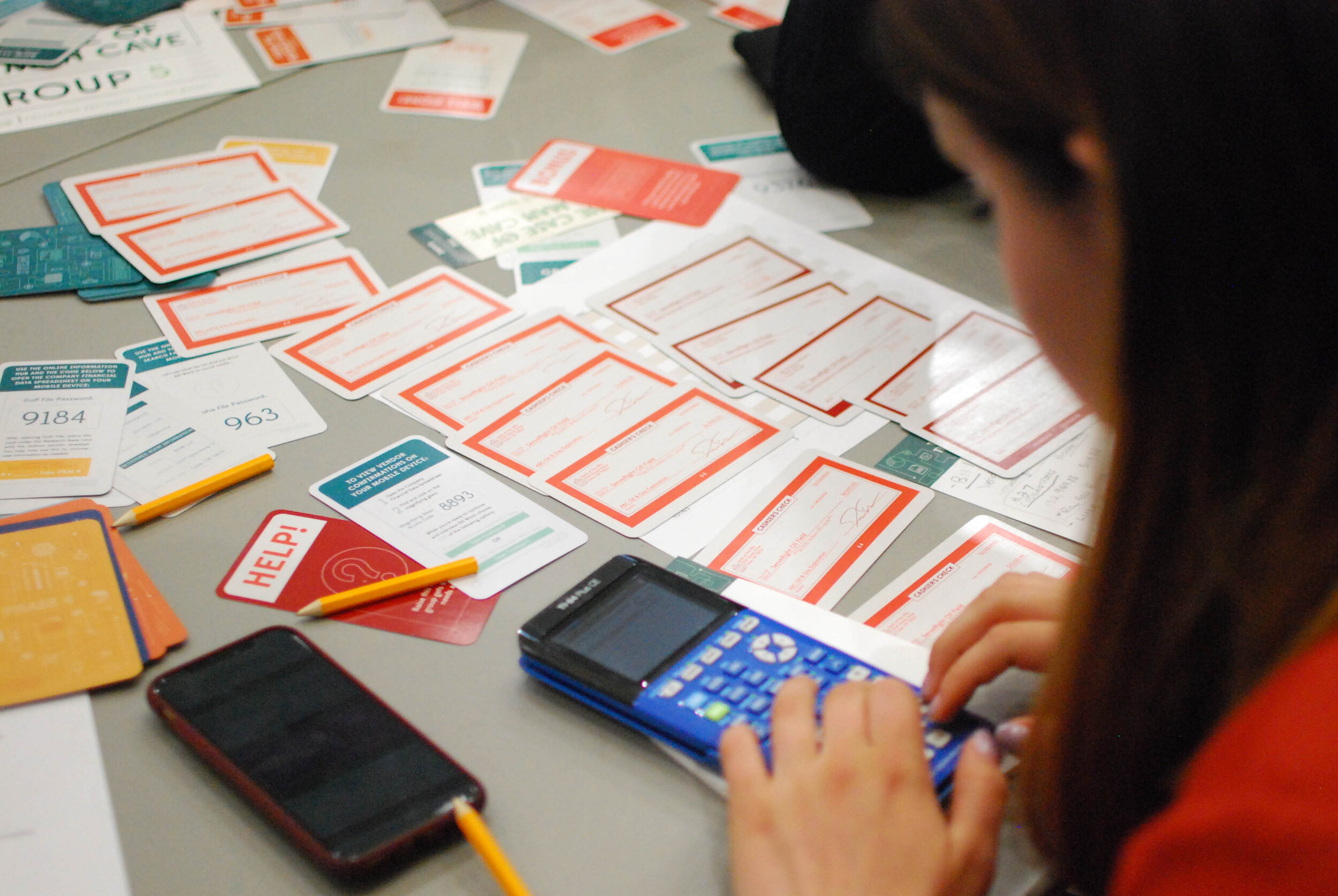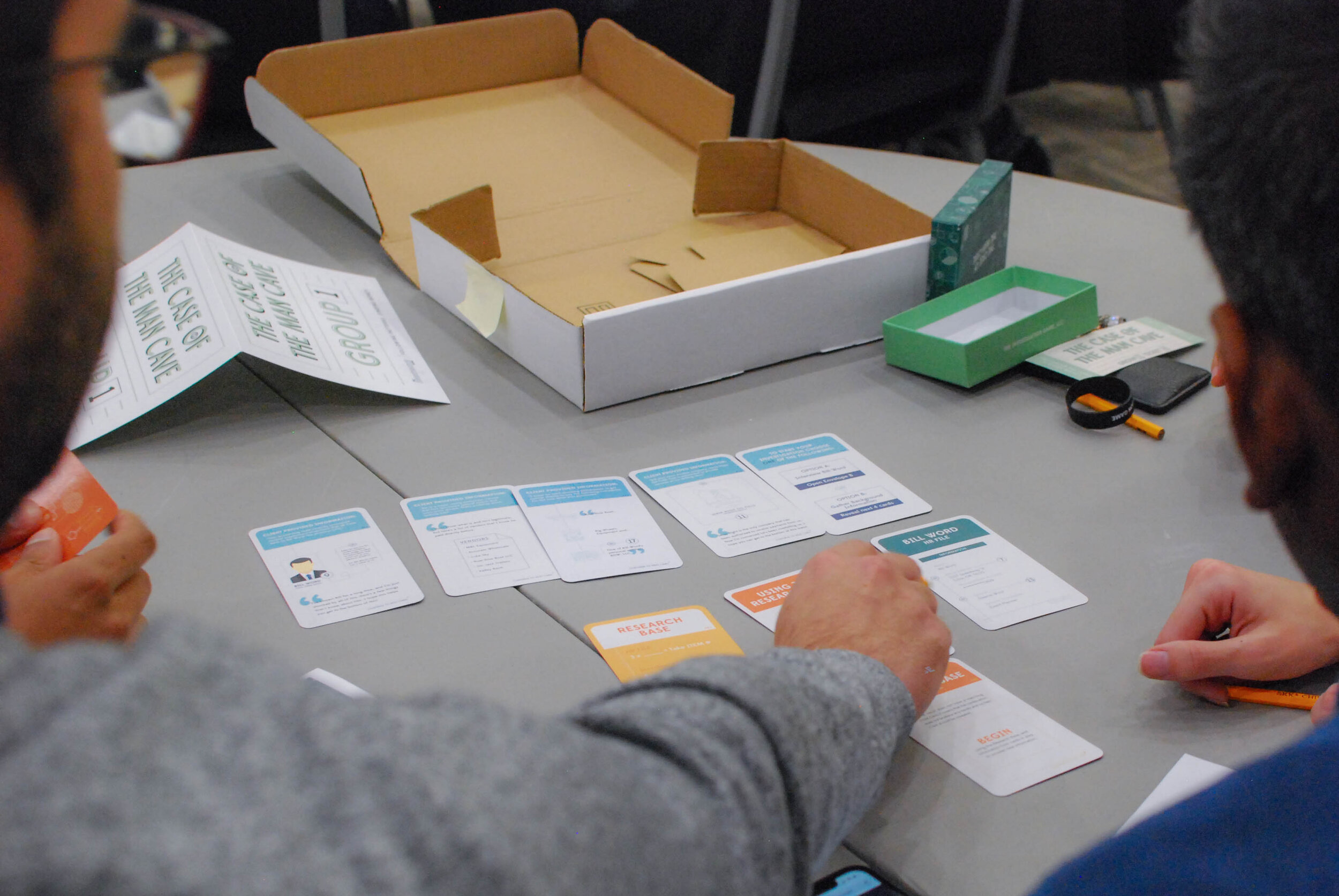Gamification in Continuing Education
By Leah Wietholter, MBA, CFE, PI
Over the past three years, I have been working to solve several problems I’ve noticed in my career as a fraud investigator and forensic accountant. One large hurdle in building or scaling a business is transferring the knowledge of the subject matter expert to the rest of the team so that clients are served with the same knowledge, skills, and expertise as if the expert was doing the work herself. This can be even more complex when the expert’s skillset is in a niche. This blog post discusses this challenge and others that I looked to solve through the gamifying fraud investigations through The Investigation Game.
Becoming a Fraud Investigator
Working for a law enforcement agency had given me a leg up, but applying those skills to the private industry was more of a challenge than I realized. Imperfect information without subpoena power, defining client scopes, and working efficiently on a budget seemed impossible. If I’m honest, the first few years involved a lot of trial and error and not being compensated for all of that time.
When I first started in the private sector forensic accounting industry, I remember attending every training and searching the Web for any article that would help me apply the knowledge from my Certified Fraud Examiner credential to the real-life case needing my attention. I met with experienced investigators and attended case study CPE sessions to learn how techniques were applied within the experts’ case stories. In this way, I searched through my mental Rolodex of stories and applied the lessons to the case in hand. Over the years, this trial and error, Rolodex system has paid off, but as I added team members and looked to grow my business, we couldn’t afford for them to have the same experience.
I remember thinking about five years ago, that if my team could work through an actual case as a game – like a murder mystery dinner – the techniques might stick a little better. That idea remained dormant until a year ago when a friend, and strategy game enthusiast, told me about the UNLOCKED! Escape games. It’s a cooperative escape room card game which allows players to have an escape room experience from their dining room table. It was this experience that brought my hands-on case study concept to life.
Gamification’s Application in Professional Training
Education-based games have existed since I can remember. Not to mention the chore chart games my mom used to inspire us to finish our chores and to earn prizes.
My research for gamification as a training tool uncovered more articles about primary and secondary instructional methods than I could count, but very few related to college students or working adults. Why? Do we grow out of this instructional method? I don’t believe so. For example, the tabletop game store that my husband and I attend hosts events most nights of the week. After playing in these events for several weeks, I realized, the majority of people I was playing with and interacting with were professionals just like myself. Doctors, lawyers, accountants, and the list goes on.
I realized one important thing that connected all of us. Games. Not only do we enjoy them, but they help us with critical thinking, problem-solving skills, and retention of knowledge.
Beta-Testing
With my knowledge of tabletop games and the desire to provide training to my team and other professionals, I decided to merge the two ideas, and from this collaboration, The Investigation Game | Case of the Man Cave was born. During 2018, we beta-tested this concept with accountants, auditors, and paralegals as participants. The overall feedback from each event was that the game was fun and reinforced the learning objective of using the investigative process and best evidence to practice the ethical standard of objectivity.
Other feedback from the testing included:
To reinforce the importance of trusting a process in the midst of overwhelming and disorganized information, the game begins with limited case background with opportunities to learn more as one plays. At first, we did not clearly communicate this intentional component, and participants felt it took too long to get organized. As we continued to host more events, we communicated more clearly that the feeling of being lost and disorganized is an intentional part of the game. After this change, the events following did not have the same feedback regarding the lack of information.
To simulate the feeling of having some type of financial budget or pressing deadline, The Investigation Game | Case of the Man Cave must be solved in 65 minutes. Fans of escape rooms loved this concept. For some, they still prefer to have unlimited time to work the case.
Favorite aspects of the game from participants included:
Learning while playing.
Playing collaboratively.
Identifying and quantifying the fraud scheme by connecting people, entities, and events.
Having all the cards, digital records, etc...not just reading a narrative. Very interactive and fun!
The hands-on learning with the ability to fail. That makes the lesson stick with you.
Least favorite aspects of the game from participants included:
Time constraints (isn’t that the truth?)
Completing the score sheet - making final decisions without knowing the answer.
Having more supporting resources such as a fraud scheme glossary.
Technology glitches, issues.
After receiving the above feedback, we returned to the drawing board to make the game work more smoothly, improve the technology component, and craft the communication throughout the presentation and the game. However, we didn’t “fix” all of the least favorite aspects because we felt they reinforced the challenges and discomfort inherent to real-life investigations. By March 2019, the training was polished and ready to certify with professional education entities, such as NASBA.
Problems Gamification Solved for Me
Networking with other experts without the awkwardness: When I have attended professional training, I have wanted to meet other experts, hear stories, and brainstorm, but the awkwardness was not often a hurdle I was motivated to overcome. Not to mention, it sometimes felt as though part of the awkwardness stemmed from mingling with competitors in the industry.
Shared experiences, like a cooperative game, allow us to set aside our competition, discover each other’s unique talents, and more than likely, we will like each other better at the end. If a game can help us do all of that, I’d say that is a networking win.
Hands-on experience: Due to the niche service offerings of my company, new employees have a large learning curve. And when you revenue is driven by a billable hour, the goal is to on-board and train new employees as quickly as possible. During a hiring spree last year, all employees played The Investigation Game | Case of the Man Cave within their first two weeks. Following their completion of the game, when new cases were in the planning phase, the new employees were contributing analysis ideas and would say, “Oh! This is like the game!” I had a proud boss moment for sure.
Where else could my team, or any participant, receive real-world experience working a case where success and failure is a reality, but clients, cases, or reputations are not harmed in the experimentation process? The value and efficiency gained in training my team has inspired the continuous development of such training. (See our newest Investigation Game | Case of the Cash Flow Fiasco!)
Cooperative games allow for working cases with a team: Fraud investigations and forensic accounting projects aren’t worked in a vacuum. Communication is key - with the client, with other investigators, with attorneys, and especially with your team. I’ve attended trainings where we read several pages of a case study and then answered questions with prompts from the instructor. Honestly, this type of experience has never felt valuable to me.
Strategic planning of The Investigation Game involved hours of discussion to intentionally design the in-person game as a cooperative training. My favorite observation from hosting an event is when a group of people discover each other’s talents and strengths in less than 65 minutes. It’s beautiful.
Have you played one of our investigation games? We’d love to hear about it! Shoot us an email at info@workmanforensics.com. If you’ve never had the opportunity, make sure to subscribe to our weekly newsletter to find out where we’ll be hosting our next event!





